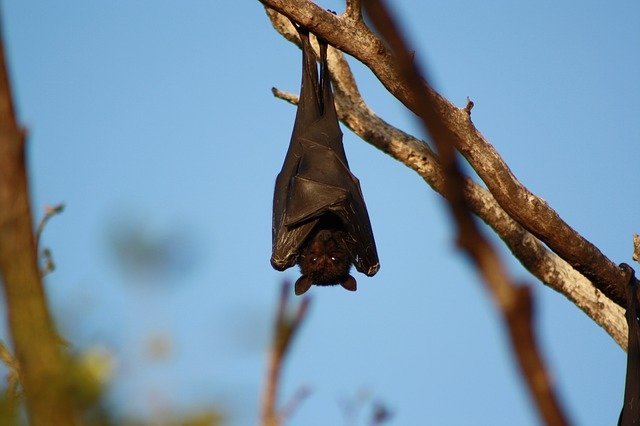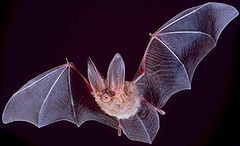The Benefits of Bats and the Dangers to Pets
Share

 While most of us associate bats with vampire movies, the truth is that their role in many ecosystems is invaluable. When you look at all they do for the environment, they aren’t nearly as scary.
While most of us associate bats with vampire movies, the truth is that their role in many ecosystems is invaluable. When you look at all they do for the environment, they aren’t nearly as scary.
For example, experts estimate that a single bat can eat between 600 – 1000 insects (including mosquitoes) within a period of an hour! Imagine what they can do to decimate your mosquito problem! Besides eating bugs, they help to disperse seeds and assist with pollination, which is very good for the environment.
But, sure – on occasion, a bat can carry Rabies. And rabies is very scary to any of us with pets (and even those crazy people who don’t have pets, because – zombies…)
This is just one more reason to ensure that your pets are current on vaccinations, but there are also other ways you can protect your pet and still support your native bat population.
Here is what to look for and how to prepare.
The weather is heating up and bats are coming out more often to feed. Generally, they will be seen in the early morning and evening hours.
If you suspect that your pet has been bitten or has eaten an infected bat, it’s important to contact authorities right away.

Rabid animals may appear unstable or show unusual behavior, such as wandering mid-day, or moving with an unusual gait. Wild animals exhibiting unusual behavior, such as no fear of people; nocturnal animals out during the day; and bats found on the ground should be reported to local animal control officials or the health department. Here are some hints on how to keep your pets safe:
- Stay away from wild and stray animals.
- Never pick up, touch or feed any wild or injured animals.
- If a bat is found, do not touch it (even if it is dead).
- Report its location to animal control or the health department.
- Teach your children never to handle unfamiliar animals, wild or domestic, even if it appears friendly.
If you or your pet has been bitten or scratched or had any contact with the animal, wash the area with warm water and soap and report it immediately to animal control or health officials. Rabies is nothing to be shy about.
[load_module id=”582″] [box title=”More Resources About Pets & Wildlife” box_color=”#006666″]Learn more about pet safety with wildlife:
- Desert Dangers: The Bark Scorpion
- Camping with Pets: Top 10 Threats to Dogs
- Desert Dangers: Toads
- Camping with Pets: Rabies
- Keeping Pets Safe from Coyotes









